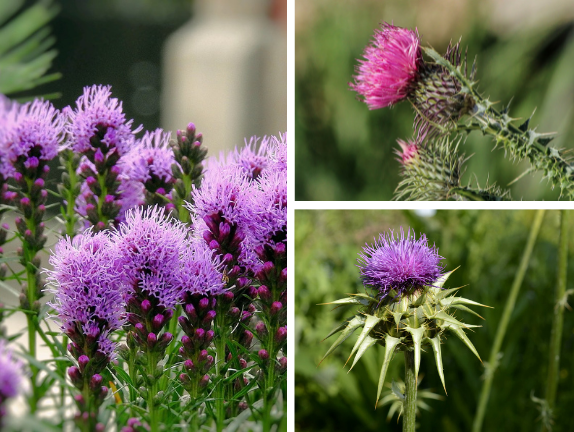Latin Name: Silybum marianum
Herb Class/Action: Hepatic, Bitter Tonic, Cholagogue, Kidney Tonic, Spleen Qi Tonic
Parts Used: Seed
Flavors: Bitter, sweet
Energetics: Mildly cool and moist
Traditional Benefits: Liver support, kidney support, digestive support, hormone support
Milk Thistle is one of the only liver-supporting herbs that also supports kidney health. This plant is rich in a group of constituents called silymarins, which have been studied extensively within the scientific community.*
Just like a tall glass of milk can provide relief from spicy foods, aptly named (yet dairy-free) “Milk” Thistle Seed can cool down and relieve excess heat in the body—especially in terms of the digestive system, liver and skin.
As a cooling and moistening herb, Milk Thistle is generally consumed as a gentle liver and “Spleen Qi” (digestive) tonic. It’s one of the best known herbs for supporting healthy liver function, with both protective and heat-clearing properties that gently clear both “toxic heat” and “empty heat,” a rare feat according to Traditional Chinese Medicine.

This means that as Milk Thistle detoxifies, it doesn’t leave us bare; this generous seed nourishes deficient “Liver Blood” and “Yin” as it clears, thanks to those moistening and nutritive properties. Liver Blood nourishing herbs are helpful for supporting shiny, lustrous hair, boosting circulation to the skin and scalp, and helping us to appear fresh and rosy, full of life and blood in our cheeks!
What’s truly amazing is that Milk Thistle is one of our phase II liver supporting herbs that actually supports kidney health too. It keeps our kidney cells healthy, eliminating and functioning optimally, which makes this seed a double whammy and rarity in the herb world.
Milk Thistle seed is rich in beneficial nutrients like lipids, flavonoids, and volatile oils. Its most beneficial constituent is a compound called silymarin, which has antioxidant and liver-supporting benefits. Extracted from milk thistle, silymarin is even being used in cutting edge topical skin care treatments for its antioxidant properties.
While Milk Thistle leaves and flowers can technically be consumed as you would a vegetable, for therapeutic purposes, the seed is most commonly infused into a tincture or encapsulated as an extract. It can also be used as a crude powder—to be mixed with lipids/fats—for more tailored consumption in food and drinks.
Traditionally, milk thistle has also been used to help promote the healthy production of breast milk during lactation.